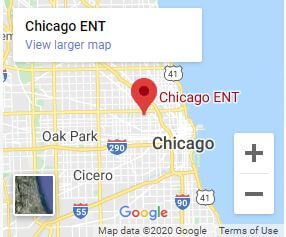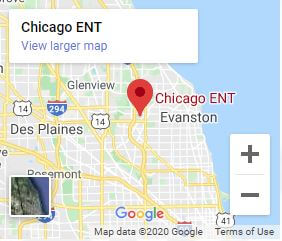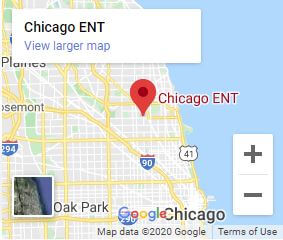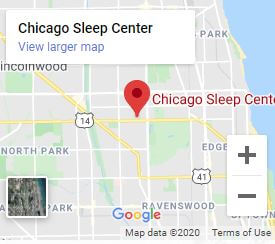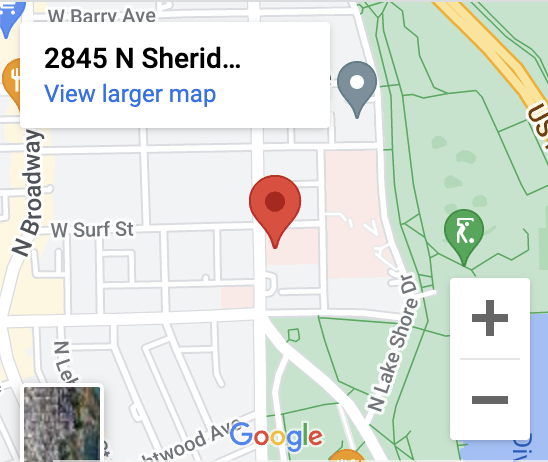Do you snore or know that your partner complains about your snoring? Snoring on its own is typically harmless. But it can be quite disruptive.
However, for some people, it may be a sign of an underlying sleep disorder or a medical condition. Snoring is caused by restricted or blocked airflow to the upper airway found behind your nose.
As a result, tissues found in the airway vibrate and strike each other. When these tissues vibrate together, it produces the snoring sound that can range from barely audible and light to heavy and disruptive.
Keep reading to find out if your snoring could be a problem and what you can do about it!
Other Causes of Snoring
The other reasons why people may snore include:
If you have an elongated soft palate
The tissues dangling at the end of your mouth can block your airway, causing you to snore. It can also make it harder for you to swallow.
Chronic nasal blockage
Changes, physical growths, or mucous in your nasal cavity can interrupt the airflow in your system. This makes you more likely to snore while you’re sleeping at night.
Overly relaxed muscles
When your tongue or throat muscles are too relaxed, they can collapse and interfere with the air passing through them. Age is one of the causes of overly relaxed muscles.
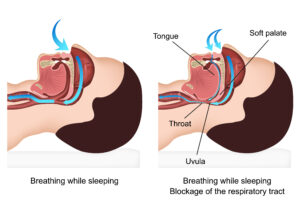
Bulky tissue in the throat
If you have large tonsils or are overweight, you’re likely to snore. Some people with a certain-sized neck or tongue are more likely to suffer from obstruction while sleeping.
Effects of Snoring on Your Well-Being
Snoring can leave you feeling exhausted and irritable when you wake up. You can also have headaches, a dry mouth, or a sore throat.
It can also place a strain on your relationship with your partner. Other effects of snoring include obesity, reduced immunity, and impaired memory.
Often, snorers feel embarrassed to sleep with others. This can affect the ability to create lasting social relationships while also promoting feelings of anxiety.
Snoring and Sleep Apnea
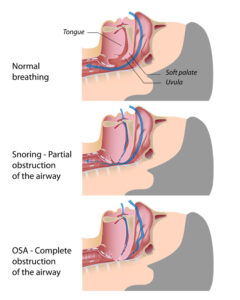
Snoring is the main symptom of OSA (Obstructive Sleep Apnea). Obstructive Sleep Apnea is a condition that occurs when the upper airway frequently closes as you sleep.
When the upper airway closes, breathing ceases for about 10 seconds. For some people, heavy snoring indicates sleep apnea.
Sleep apnea is a sleeping disorder that can cause you to gasp for air or choke in your sleep. Sometimes, obstructions to breathing can last for over a minute and occur more than 100 times per hour.
OSA can deprive the body of oxygen and be disruptive to you and your partner. If you have OSA, your risk of stroke, heart attack, high blood pressure, and car accidents is more elevated.
Children who snore are more likely to do poorly in school as well as suffer from behavioral issues.
OSA Risk Factors
Some of the risk factors of obstructive sleep apnea include:
Enlarged tonsils
If you have larger than normal tonsils, these can block the upper airway, making it harder to breathe.
Thyroid disorders
The endocrine system produces hormones that can interfere with breathing as you sleep. An example of this is hypogonadism.
This condition leads to a decreased production of testosterone. A common way to treat hypogonadism is testosterone replacement therapy.
But using this treatment can worsen sleep apnea. When a deceased production of testosterone due to hypogonadism is treated using testosterone replacement therapy, it can worsen sleep apnea. Low thyroid hormone levels because of hypothyroidism are associated with OSA.
Genetic syndromes
Certain genetic conditions like Down syndrome or having a cleft palate affect the structure of the jaw and face, causing airway restriction.
Recommended Lifestyle Changes if You Snore
Simple changes can help reduce or prevent snoring:

- Avoiding smoking to minimize fluid accumulation and irritation in the airway
- Avoiding drinking alcohol before bed to reduce how relaxed the muscles in your airway get
- Losing any excess weight to minimize compression of the airway
- Cutting back on sedatives before bed
If you snore regularly, you should see a sleep and respiratory specialist like the experts at Chicago ENT. This is the only way to receive an accurate diagnosis and determine the best treatment plan if you do have a sleep disorder like sleep apnea.
How Do I Know If I Have Sleep Apnea?
You will not suspect you have sleep apnea until your partner or someone else points out that you’ve been snoring, snorting, and gasping while you’re sleeping. Doctors often can’t tell if you have the condition during a routine checkup.

If you think you have sleep apnea, it’s a good idea to discuss it with your doctor. They may recommend you see a doctor at Chicago ENT. Before this appointment, they may recommend or perform the following:
Create a Sleep Diary
Maintain a sleep diary for several weeks and bring it to your next appointment. You’ll note down when you take naps, sleep, and wake up.
Also, note how well-rested you feel when you wake up in the morning and how much sleep you get at night. You’ll need to ask your family member or partner how loudly you snore and if you choke or gasp while sleeping.
Physical exam
The doctor will examine your throat, mouth, and nose for enlarged tissues.
Sleep studies
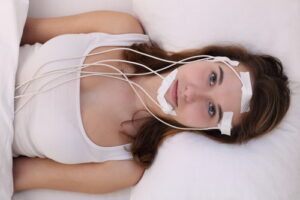
The most common sleep studies are a polysomnogram (PSG) and a home-based portable monitor. They can accurately confirm if you have sleep apnea and its severity.
PSG records your blood pressure, heart rate, brain activity, blood oxygen levels, eye movement, and more. The test is painless and normally done in a sleep lab or sleep center.
A home-based portable monitor records the same information as a PSG, but it’s done at your home. Your doctor at Chicago ENT will recommend whether you require a full study in a sleep lab based on the results.
Snoring and Sleep Apnea Specialists
A lot of things can be responsible for your snoring and sleep apnea. The team of expert head and neck surgeons, ENTs, dental sleep specialists, and allergists at Chicago ENT offer a range of minimally invasive and non-invasive treatments.
We will work with you to find the perfect treatment options tailored to your unique needs. To find the cause and treatment of your snoring or sleep apnea, schedule your consultation today with Chicago ENT in Bucktown, IL today!











